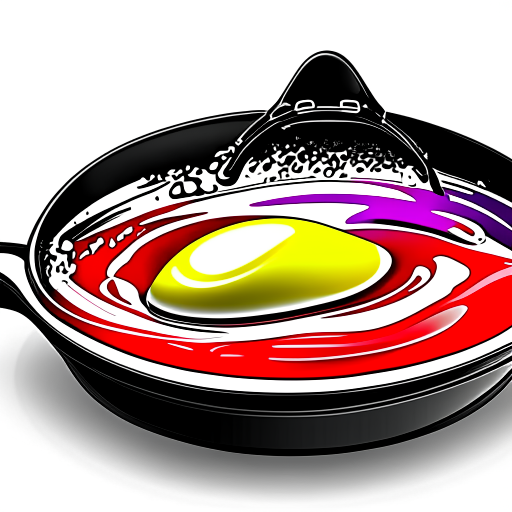Are you tired of feeling sluggish and lacking energy throughout the day? Look no further! Tastepan is here to help you prioritize your well-being with our collection of delicious and nutritious recipes. We understand that healthy eating should never mean sacrificing flavor, which is why we have curated a selection of wholesome meal ideas, dietary tips, and expert advice to make eating for energy a breeze. With our help, you can nourish your body and fuel your day without compromising on taste. Say goodbye to fatigue and hello to vitality!

The Importance of Fueling Your Body
As you go through your day, you rely on your body to perform various tasks and activities. Whether it’s working, exercising, or simply enjoying time with loved ones, having enough energy is crucial. But have you ever stopped to think about the role that food plays in fueling your body? Proper nutrition and the right choice of foods can have a significant impact on your energy levels and overall well-being. By understanding the importance of fueling your body, you can make informed choices that will help you feel your best throughout the day.
Understanding the Role of Food in Energy Levels
Food serves as the primary source of energy for your body. When you consume food, your body breaks it down into nutrients that are used for various bodily functions, including energy production. Carbohydrates, proteins, and fats are the three main macronutrients that provide energy, while vitamins and minerals play a crucial role in energy metabolism.

How Proper Nutrition Helps with Energy Production
Proper nutrition not only provides your body with the necessary fuel but also supports optimal energy production. Each macronutrient plays a unique role in this process.
Carbohydrates: The Primary Source of Energy
Carbohydrates are the body’s preferred source of energy. They are broken down into glucose, which is used by the body’s cells to produce energy. Including carbohydrates in your diet ensures that your body has a readily available source of fuel. Good sources of carbohydrates include whole grains, fruits, and vegetables.
Protein: Building Blocks for Energy Production
Protein is essential for building and repairing tissues, but it also plays a role in energy production. When carbohydrates are in short supply, your body can use protein for energy. Including sources of lean protein, such as poultry, fish, and legumes, in your diet ensures that your body has an adequate supply.
Healthy Fats: Slow-release and Sustained Energy
While fat is often associated with weight gain, it is an important component of a balanced diet. Healthy fats provide a slow-release and sustained source of energy. They also help your body absorb certain vitamins and minerals. Good sources of healthy fats include avocados, nuts, and olive oil.
Vitamins and Minerals: Vital for Energy Metabolism
Vitamins and minerals are essential for energy metabolism. They act as cofactors in various enzymatic reactions that occur within your cells, ensuring that energy is produced efficiently. Including a wide variety of fruits, vegetables, and whole grains in your diet can help you meet your daily requirements of these micronutrients.
Breakfast: Energizing Your Morning
They say that breakfast is the most important meal of the day, and it’s true! After a night of fasting, your body needs fuel to kickstart your day and provide sustained energy. A nutrient-dense breakfast sets the tone for the rest of your day, giving you the energy you need to stay focused and productive.
The Power of a Nutrient-Dense Breakfast
A nutrient-dense breakfast consists of foods that provide a good balance of macronutrients and micronutrients. It should include carbohydrates for quick energy, protein for sustained energy, and essential vitamins and minerals. By starting your day with a nutritious breakfast, you give your body the fuel it needs to perform at its best.
Foods to Include in Your Breakfast for Long-lasting Energy
To ensure long-lasting energy throughout the morning, consider including foods like whole grain toast, oatmeal, or yogurt for carbohydrates. Pair these with a source of protein such as eggs, Greek yogurt, or nut butter. Adding fruits or vegetables to your breakfast also provides essential vitamins and minerals. By including a variety of these foods, you’ll start your day with a balanced and energizing meal.

Mid-Morning Snacks: Sustaining Energy
By mid-morning, you may start to feel a dip in your energy levels. Rather than reaching for a sugary or processed snack, opt for snacks that can sustain your energy until lunchtime.
Snack Ideas to Keep You Going
When choosing a mid-morning snack, aim for options that provide a combination of carbohydrates, protein, and healthy fats. Some snack ideas to consider include a handful of nuts and seeds, a piece of fruit with yogurt, or a small vegetable and hummus wrap. These snacks provide a nutrient-dense and balanced combination of macronutrients, helping to sustain your energy levels until lunch.
The Role of Protein in Sustained Energy
Protein is particularly important for sustained energy as it takes longer to digest than carbohydrates. When combined with carbohydrates, protein helps to slow down the release of glucose into your bloodstream, preventing energy crashes. Including a source of protein in your mid-morning snack can help you maintain consistent energy levels throughout the day.
Lunch: Fueling Your Afternoon
As you reach the midpoint of your day, it’s important to have a lunch that fuels your body and keeps your energy levels up. A balanced lunch provides the nutrients needed to sustain your energy and support your afternoon activities.
Building a Balanced Lunch for Continued Energy
A balanced lunch should include a combination of carbohydrates, protein, and healthy fats. Incorporating a variety of vegetables, whole grains, lean proteins, and healthy fats like avocado or olive oil can provide sustained energy throughout the afternoon. Avoid meals that are heavy in refined carbohydrates or unhealthy fats, as they can lead to energy crashes and sluggishness.
Incorporating Fiber-Rich Foods for Satiety and Energy
Fiber-rich foods are an excellent addition to your lunch as they provide satiety and sustained energy. Including foods like whole grains, legumes, and vegetables in your lunch can slow down digestion, preventing rapid spikes and drops in blood sugar levels. This helps you feel fuller for longer and maintains a steady supply of energy throughout the afternoon.
Afternoon Pick-Me-Up: Snacks for Sustained Focus
As the afternoon slump hits, it can be tempting to reach for sugary snacks or caffeine for a quick energy boost. However, these quick fixes often lead to energy crashes later on. Instead, opt for snacks that provide a sustained focus and help keep your energy levels stable.
Snacking Strategies to Beat the Afternoon Slump
When choosing an afternoon snack, it’s important to avoid sugary and processed options that provide short-lived energy. Instead, look for snacks that combine carbohydrates, protein, and healthy fats. Snack ideas could include a handful of trail mix, a Greek yogurt with berries, or a slice of whole grain toast with avocado. These snacks provide a balanced combination of nutrients that can sustain your energy and focus until dinnertime.
Combining Carbs, Protein, and Healthy Fats for Lasting Energy
Combining carbohydrates, protein, and healthy fats in your afternoon snack helps maintain energy levels and keeps you focused. Carbohydrates provide a quick source of energy, protein sustains energy, and healthy fats slow down digestion for longer-lasting energy. By including all three macronutrients in your snack, you can avoid the crash and burn associated with sugary snacks and maintain a steady flow of energy.
Dinner: Recharge for the Evening
After a long day, dinner provides an opportunity to recharge and refuel your body. A balanced dinner not only helps you unwind but also sets the stage for restful sleep and prepares your body for the following day.
Balancing Macronutrients for Evening Energy
Just like with other meals, a balanced dinner should incorporate a combination of carbohydrates, protein, and healthy fats. Including complex carbohydrates like quinoa, sweet potatoes, or whole grain pasta can provide sustained energy for the evening. Lean proteins like grilled chicken or fish ensure that your body has the necessary building blocks for repair and regeneration. Healthy fats like olive oil or avocado can provide the slow-release energy needed for a restful evening.
Incorporating Complex Carbohydrates for Restful Sleep
Incorporating complex carbohydrates in your dinner can help promote restful sleep. These carbohydrates take longer to digest and provide a slow and steady release of glucose throughout the night. This helps maintain stable blood sugar levels and prevents disruptions in sleep due to hunger. Including foods like whole grains, legumes, or starchy vegetables can help prepare your body for a restful night’s sleep.
Evening Snacks: Promoting Relaxation and Rest
As you wind down for the evening, it’s important to choose snacks that promote relaxation and restful sleep. Your choice of evening snacks can have a significant impact on your energy levels and the quality of your sleep.
Snack Options to Prepare for a Restful Sleep
Choosing the right evening snacks can help promote relaxation and prepare your body for a restful sleep. Opt for snacks that are low in sugar and provide a combination of protein and healthy fats. Some examples include a small portion of Greek yogurt with a drizzle of honey, a handful of almonds, or a slice of whole grain toast with nut butter. These snacks provide a balanced combination of nutrients that can support relaxation and enhance the quality of your sleep.
Foods to Avoid Before Bed to Enhance Energy Levels
While certain foods can promote restful sleep, others can disrupt your sleep and leave you feeling groggy in the morning. It’s best to avoid heavy meals, spicy foods, caffeine, and high-sugar snacks before bed. These can interfere with your body’s natural sleep cycle and impact the quality of your sleep. By making mindful choices and avoiding these foods, you can optimize your energy levels and wake up feeling refreshed.
Hydration: The Key to All-Day Energy
While it’s essential to focus on the foods that fuel your body, it’s equally important to prioritize hydration. Dehydration can have a detrimental impact on your energy levels and overall well-being. Staying properly hydrated throughout the day is crucial for maintaining optimal energy.
The Impact of Dehydration on Energy Levels
Dehydration can lead to fatigue, decreased cognitive function, and a general feeling of lethargy. Water is essential for various bodily functions, including energy production. When you’re dehydrated, your body has to work harder to carry out its normal functions, resulting in decreased energy levels. It’s important to listen to your body’s thirst signals and drink an adequate amount of water throughout the day.
Hydrating Foods and Beverages to Boost Energy
In addition to drinking water, you can also boost your hydration levels by consuming hydrating foods and beverages. Foods like watermelon, cucumber, and oranges have high water content and can help keep you hydrated. Herbal teas and infused water can also serve as refreshing options while providing hydration. By incorporating these hydrating options into your daily routine, you can support your energy levels and overall well-being.
Lifestyle Factors that Contribute to Energy Levels
In addition to proper nutrition, several lifestyle factors play a crucial role in maintaining optimal energy levels. By prioritizing these factors, you can enhance your overall well-being and maximize your energy throughout the day.
The Importance of Regular Physical Activity
Regular physical activity has numerous benefits, including increased energy levels. Engaging in exercise boosts the production of endorphins, which are known as the body’s natural mood elevators. Regular exercise also improves cardiovascular health, enhances sleep quality, and reduces stress, all of which contribute to sustained energy levels. Finding activities that you enjoy and incorporating them into your routine can help you stay active and boost your energy throughout the day.
Quality Sleep and Its Influence on Energy
Quality sleep is essential for energy restoration and overall well-being. Lack of sleep can lead to fatigue, decreased cognitive function, and increased susceptibility to illness. Aim for 7-9 hours of quality sleep each night by establishing a regular sleep schedule, creating a relaxing bedtime routine, and ensuring a comfortable sleep environment. By prioritizing sleep, you give your body the time it needs to recharge and wake up feeling refreshed and energized.
Managing Stress for Optimal Energy Levels
Stress has a significant impact on energy levels. Chronic stress can lead to fatigue and burnout, making it challenging to stay energized and focused. By implementing stress management techniques such as mindfulness, deep breathing exercises, and engaging in activities you enjoy, you can mitigate the effects of stress on your energy levels. Taking time for self-care and maintaining a healthy work-life balance are also key in managing stress and optimizing your energy levels.
In conclusion, fueling your body with the right foods and making lifestyle choices that support energy levels is crucial for optimal well-being. By understanding the role of food in energy production and incorporating nutrient-dense meals and snacks into your day, you can sustain your energy levels and feel your best. Prioritizing hydration, engaging in regular physical activity, getting quality sleep, and managing stress are all important lifestyle factors that contribute to maintaining optimal energy levels. With a holistic approach to fueling your body and prioritizing your well-being, you can enhance your energy levels and live a vibrant and fulfilling life.

